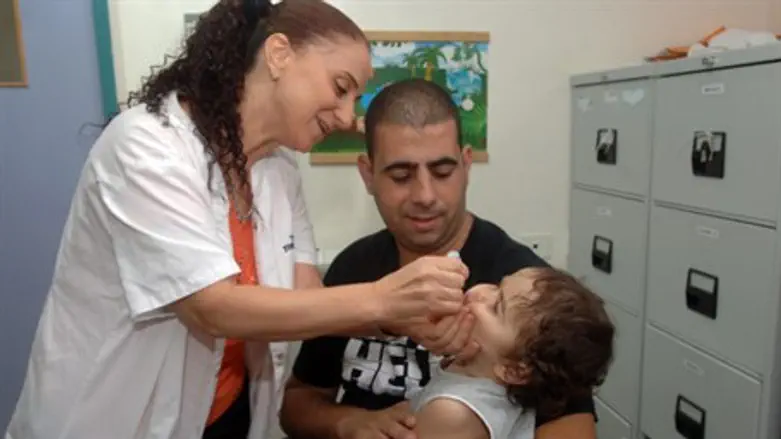
The Health Ministry has high hopes for the ongoing mass immunization program in southern Israel, a response to the discovery that roughly 2.5% of children living in the region carry the polio virus.
“I hope we’ll manage to eradicate this virus, which is fairly stubborn,” Health Minister Yael German said, speaking to Walla! News.
The public should not be worried, she said, “If it worries me, you can relax. It’s OK, we’re taking care of it.”
She added, “We have a professional team that’s taking care of it, that’s doing tests, sending samples abroad, gathering information each day… Tomorrow we’ll do a general assessment of the situation. If, G-d forbid, the virus spread, or there is a case of illness – and I very much hope that won’t happen – then there will be cause for concern. But for now there’s no need to worry.”
German also responded to reports that the virus was brought to Israel by illegal entrants who infiltrated Israel from Egypt. “I… we’re not sure it was the illegal entrants,” she said. “Let’s not rush to point fingers.”
Many people from around the world enter Israel legally, she pointed out.
While German seemed encouraged by the immunization program’s smooth start, the program now faces a new challenge: activist groups which believe the vaccines being offered may be dangerous.
“The drops contain the weakened virus, and health organizations around the world have agreed that the drops themselves can cause polio,” argued Mor Sagmon of the Association for Information on Vaccines.
In 1988 some children developed polio after being given an oral vaccine with a live strain of the virus, he said.
Sagmon argued that the vaccines currently being used in Israel have not been adequately tested. “This is a vaccine that was developed in India and has never been tried in a Western country,” he said.
Sagmon has stated that he is not against vaccines, but simply wants parents to be aware of potential dangers. However, many others are using Facebook and similar sites to call on parents not to allow health workers to give their children the immunization.
The World Health Organization has expressed support for the ongoing immunization efforts in Israel. The organization’s website notes that it is “very rare” for the live strain used in the vaccine to reverse to the profile of wild polio, and that even then, it does not always lead to infectious poliomyelitis.
Within Israel, the immunization campaign has received support from MK Ilan Gilon of Meretz, who suffered polio as a baby and was left with a lifelong handicap as a result. His personal experience has led media outlets to seek his opinion on the matter, and he has expressed support for the effort to vaccinate children.